A documentary film which deals with the violence of Immigration Police and the situation of foreign workers in Israel.
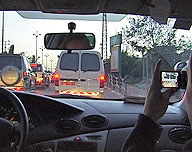

A documentary film which deals with the violence of Immigration Police and the situation of foreign workers in Israel.
A feature documentary, After The Storm captures the lives of the kids and crew as they turn a gym into a theater, come together as a company, and create hope and purpose in the midst of devastation and despair. After the Storm is a feature length documentary that follows the production of the musical Once On This Island at the St. Mark’s Community Center in New Orleans as it moves from the first round of auditions to the opening night performance and then on to a sold-out Off Broadway theater in New York City. The film explores the cultural landscape of New Orleans as seen through the eyes of a dozen teenage actors. As this creative journey unfolds, the young actors open up their hearts and homes to the film crew and reveal their personal stories of day-to-day survival in present-day New Orleans. It is from their perspective that we see this unique American city still struggling to piece itself back together two years after the hurricane. An emotional and entertaining experience celebrating the spirit and culture of New Orleans, this film is about how the power of story can bring a community together. The focus of the film is not on the storm’s devastation, but rather on how these “storm-tossed” teens are moving on with their lives after having lost everything. After the Storm documents the story of a people and a city that is beginning to piece itself together. The theatre project provided the kids with a unique experience and gave them the kind of professional training that is not readily available in New Orleans. But more than that, it created the opportunity for them to share their point of view and their stories while focusing on something other than just their day-to-day survival and allowing them to grow as individuals and shine as performers.
Crossing Borders tells the story of Aisha Sidawi and Umiya Abu-Ras, two Palestinian Israeli women struggling to achieve equality against the men in their lives; are taking part in a political activity which was until now an “only men” arena; and are wrestling to cross both personal and political boundaries. Their straggles – the personal one at their homes with family members to reach independence and equality and the political one at their Palestinian community in Israel and in the Palestinian authority to defend its weak members – fortify and support each other.
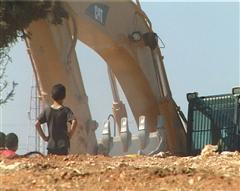
The film will start with the pulling down the wall. No, not the wall of Berlin, but the wall of Jerusalem that divided the city until 1967. The end of the film will take us back to Jerusalem, where a new and much more formidable wall is being built, annexing the area of East (Palestinian) Jerusalem. In between we will unfold the story of the Fence that has three layers.
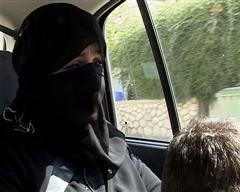
Khitam, a Gaza-born Palestinian woman, was married off in an arranged match to an Israeli Palestinian, followed him to Israel and bore him six children. When her husband divorced her – in absentia – in the Sharia Muslim court and gained custody of the children, Khitam was left with nothing. She cannot contact her children, has no property and no citizenship. Although married to an Israeli, a draconian law passed in 2002 and barring any Palestinian from gaining Israeli citizenship has made her an illegal resident there. Now she is out on a dual battle, the most crucial of her life: against the court – which always rules in favor of the husband – and against the state, in a last-ditch effort to gain citizenship and reunite with her children.
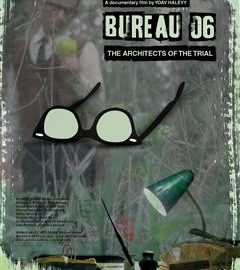
The dramatic story of “Bureau 06”, the team of police investigators formed for the intent purpose of investigating and preparing the grave charges brought up by the Jewish people against Adolf Eichmann. The charges told the story of the Jewish Holocaust to the entire world in a way that it had not been told before. These charges cried out, exactly 50 years ago, the cry of “J’accuse” at the Eichmann trial and changed the collective Israeli consciousness forever.
This film tells the unique personal and group stories of this team of investigators, their hardships, their confessions and the emotional turmoil they experienced, together and alone. Among them the story of Avner Less the personal interrogator of Adolf Eichmann who left Israel after the trial and took back his Germany Identity card.
-240x270.jpeg)
Ex-IDF commando Yakov Arnan and actor and director Mahmoud Soubah take a group of 30 Arab and Jewish teenagers on a 30-day theater camp in a peaceful castle in southern England.
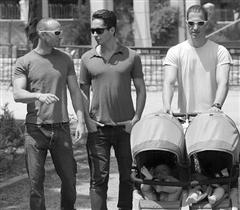
When many people think of Israel, it is often in terms of modern war or ancient religion. But there is much more to the Jewish state then missiles and prayers. In his debut as a documentary filmmaker, adult-film entrepreneur and political columnist Michael Lucas examines a side of Israel that is too often overlooked: its thriving gay community. Undressing Israel features interviews with a diverse range of local men, including a gay member of Israel’s parliament, a trainer who served openly in the army, a young Arab-Israeli journalist, and a pair of dads raising their kids. Lucas also visits Tel Aviv’s vibrant nightlife scene-and a same-sex wedding-in this guided tour to a country that emerged as a pioneer for gay integration and equality.
What is a true hero? What compels one to maintain their integrity and go against the grain to fight for what is just? The film is an insightful journey into understanding what makes a person choose “good” over “evil”. Against all odds, some people will always fight for what is just.
“A Letter to Wedgwood: The Life of Gabriella Hartstein Auspitz” – the story of how a young girl’s meeting with a progressive British politician led to her surviving the Holocaust.